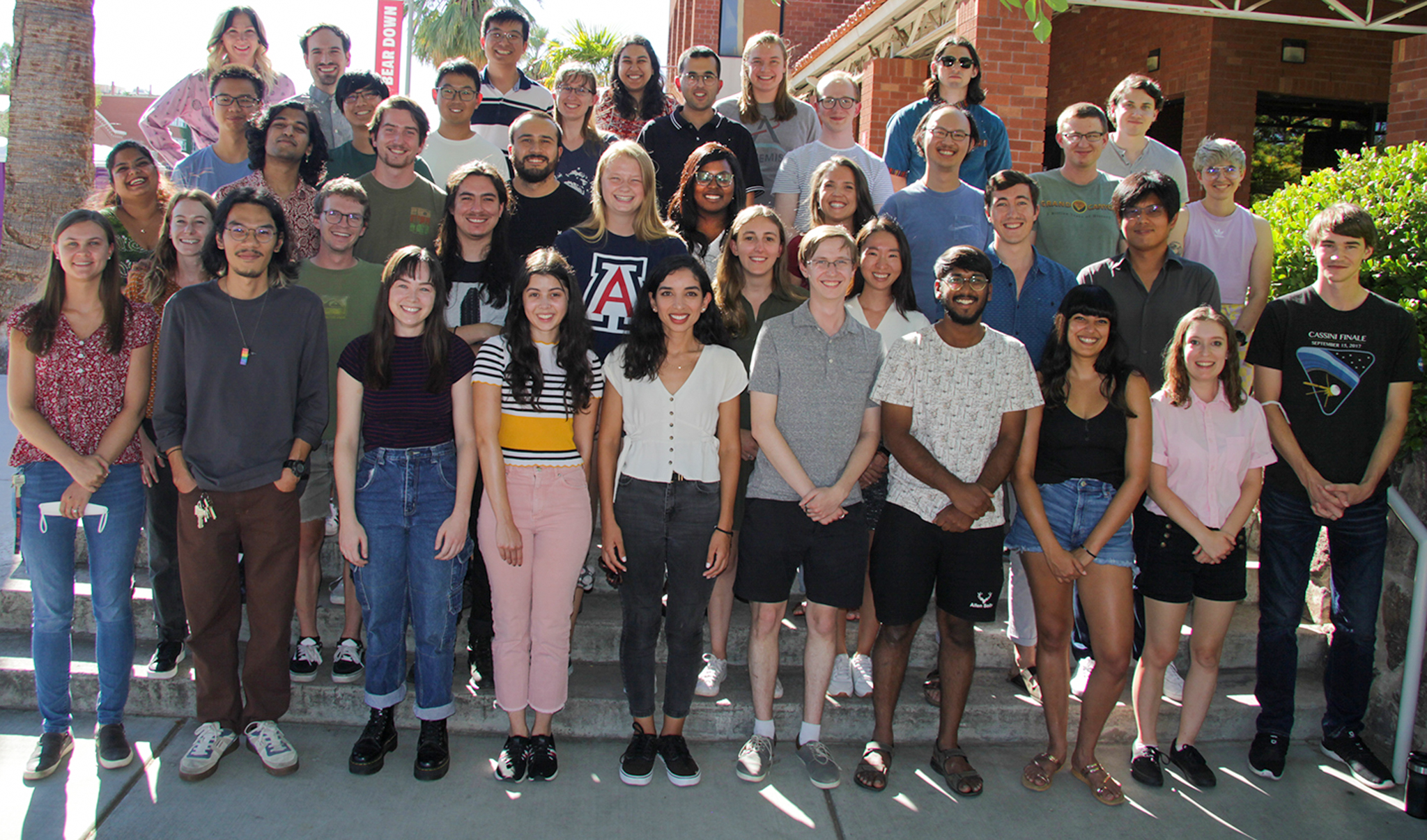Pause Video
Play Video
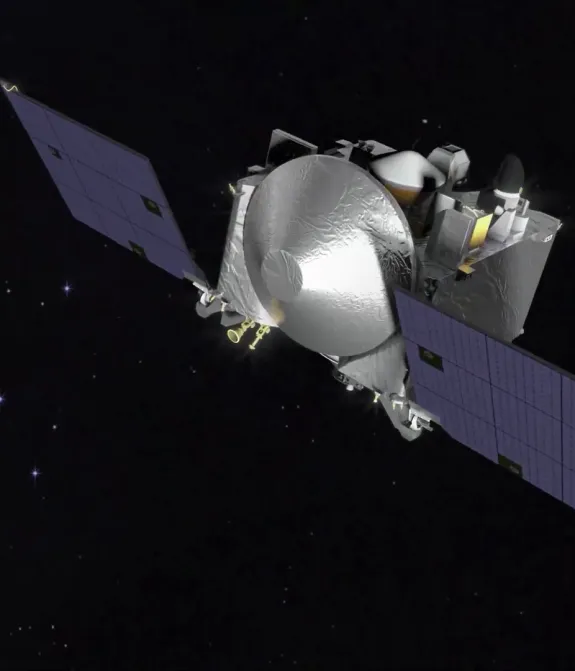
Explore Planetary and
Solar Systems Science at LPL
Welcome to the Lunar and Planetary Laboratory
LPL in the Spotlight
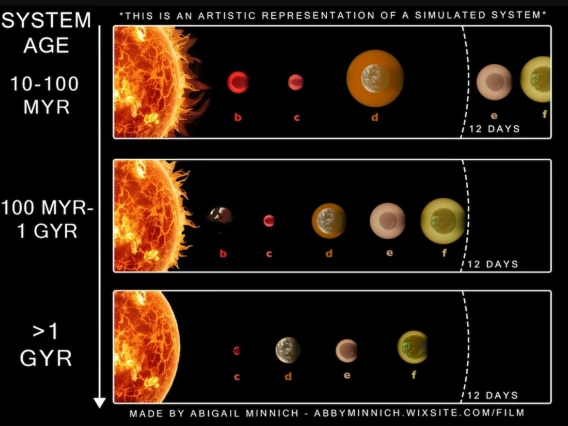
Combination of Cosmic Processes Shapes the Size and Location of Sub-Neptunes
A combination of cosmic processes shapes the formation of one of the most common types of planets outside of our solar system, a new study finds. The research team, which included University of Arizona planetary scientists, used data from NASA's Transiting Exoplanet Survey Satellite, or TESS, to study young sub-Neptunes - planets bigger than Earth but smaller than Neptune - that orbit close to their stars.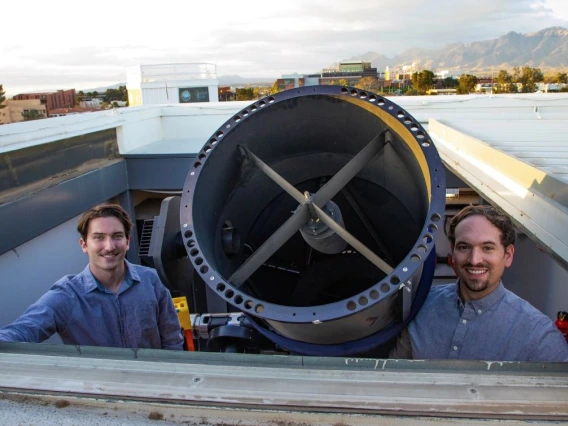
New 'Spectral Fingerprint' Atlas of Satellites Aims to Improve Space Security
LPL researchers have created the first astronomical equivalent of a fingerprint database for satellites, a critical first step toward easily identifying human-made objects in the increasingly crowded geostationary orbit.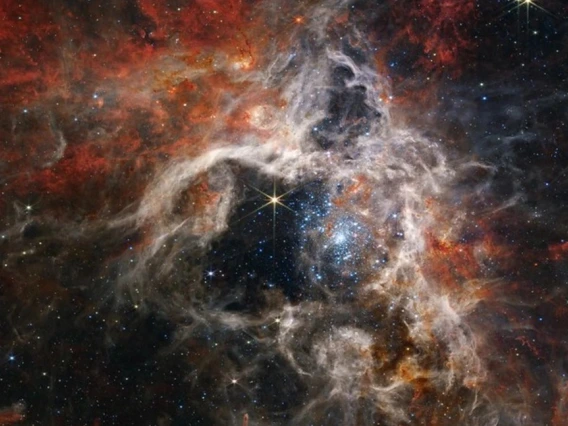
U of A Earns Top Marks in Space Science, Geosciences, Water Resources in New US News Global Ranking
The U of A earned its best ranking in the space science category, rising four spots to No. 4 globally and No. 2 among U.S. public universities.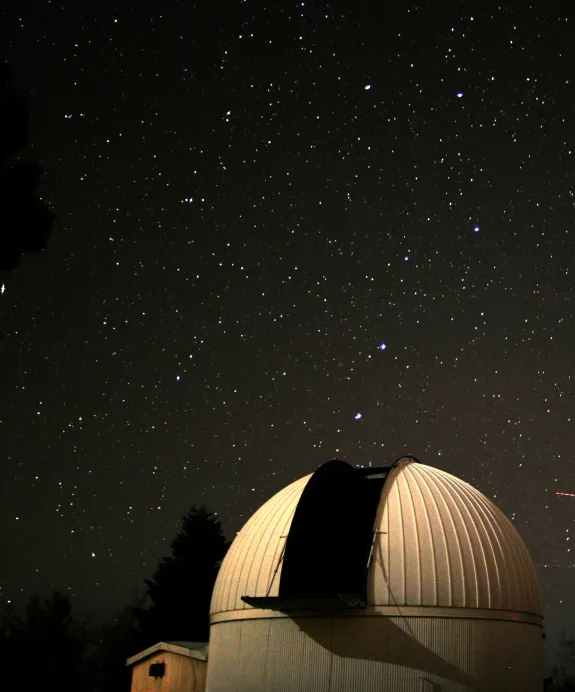
Research Focus Areas
Pursuing interdisciplinary research spanning the breadth and depth of planetary science.
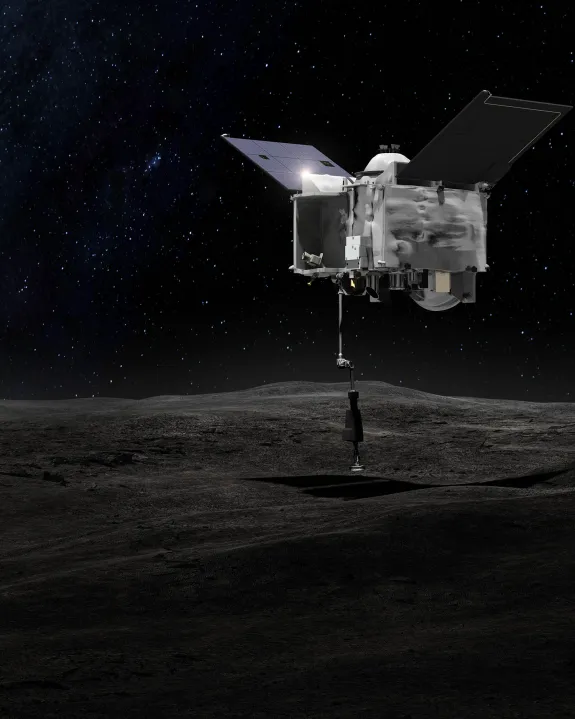
Spacecraft Missions and Instrumentation
Exploring the Universe as investigators on spacecraft mission and instrumentation teams.
Discover Planetary Sciences
Earn a Ph.D. with a major in Planetary Sciences.
Graduate Program
The Department of Planetary Sciences offers multidisciplinary programs leading to the Doctor of Philosophy degree with a major in planetary sciences.
Undergraduate Program
The Department of Planetary Sciences offers an undergraduate minor in Planetary Sciences.
Astrobiology Minor
Astrobiology is an interdisciplinary field that combines astronomy, geology, biology and chemistry.
Public Education and Outreach
Faculty, staff, and students engage with diverse communities.

Space Drafts
Space Drafts is Tucson’s flavor of Astronomy on Tap. Talks are held one Wednesday of every month at one of Tucson’s finest microbreweries, The Borderlands Brewing Company. Space Drafts is free and open to all ages (of humans and dogs alike).
Arizona/NASA Space Grant
Arizona/NASA Space Grant Consortium, headquartered at LPL, contributes to the nation's science enterprise by implementing research, education and public service


